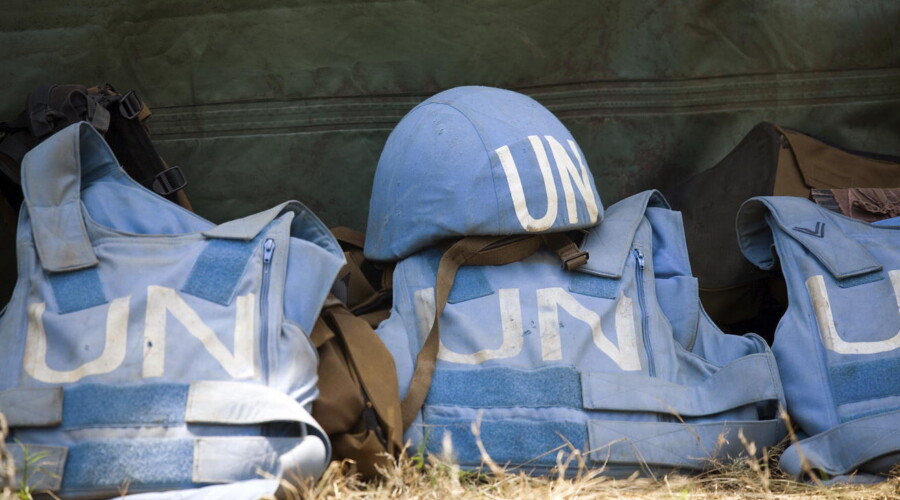With a flurry of news about escalating tensions between North and South Korea,
it might seem that the game has completely changed. But for Koreans, exactly what
has changed that would make the current events so crucial?
From a historical perspective, the recent back and forth between North and South
Korea reveals nothing new. South Korean President Lee Myung-bak portrayed the
March 26th sinking of a South Korean warship, allegedly by a North Korean torpedo,
as one more act in a long list of aggressive actions by North Korea. During the
keynote address at The Shangri-La Dialogue on June 4, President Lee cited two
similar acts of aggression by North Korea. One was the attempted assassination
in 1983 of South Korea's then president, in which 17 high ranking officials, including
the deputy prime minister, were killed. The other was the 1987 bombing of a Korean
Air flight, killing all 125 passengers on board.
The denial of responsibility
and the rhetoric coming from North Korea remains the same as it was in the 1980s,
and in my opinion, prospects for change remains unlikely, despite two new factors:
1) North Korea now has nuclear weapons, and 2) North Korea is in the midst of
a possible succession of power from leader Kim Jong-il to his third son, Kim Jong-un.
Nuclear Weapons
Having nuclear weapons undoubtedly gives North Korean threats more weight and
makes the worsening relations between the North and South headline news. In 2006,
North Korea conducted its first underground nuclear weapons test. They did another
one in 2009, despite international warnings. For most people viewing the situation
from a non-Korean perspective, North Korean possession of nuclear weapons would
indicate a stepped-up threat to South Korea. Yet for many South Koreans, the situation
seems to be far more complex.
North Korea's possession of nuclear weapons does not increase or decrease the
likelihood of destruction for South Korea if North Korea attacked. The threat
of destruction by North Korea has hung over South Korea ever since the Korean
War began in 1950. For the last half century, North Korea has made countless threats,
including the famous statement in 1994 about turning Seoul into a "sea of
fire" through the use of non-nuclear missiles This constant threat is something
that the current generation of South Koreans is already used to. What's more,
for many young Koreans who didn't live through the Korean War and therefore never
experienced the brutality of North Korean aggression firsthand, North Korean possession
of nuclear weapons means simply that when both Koreas reunite, South Korea too
would have nuclear weapons and reap the benefits.
The naivety displayed by South Korean youths needs to be understood from a historical
perspective. Korea was under Japanese rule for 35 years, from 1910 until the Japanese
defeat in World War II in 1945. When the war ended, Korea was divided along the
38th parallel, with United States troops occupying the southern part and Soviet
troops occupying the northern part. South Korean textbooks teach that Korea was
forced to separate into two countries by foreign powers, implying that the breakup
was against the North Korean people's will.
When the Korean War broke out in June
1950 with North Korean forces crossing the 38th parallel, a civil war between
brothers occurred. A sympathetic viewing of North Koreans as their own brethren
is not far-fetched. Many families were separated during the war, and a considerable
number of South Koreans still know family on the other side. In contrast to the
situation between Taiwan and China, South Korea has a much stronger sense of one
common people than Taiwan does. The South Korean people very much desire a reunified
Korea.
Although a ceasefire agreement signed in July 1953 halted the fighting, the Korean
War never really ended. Korea remains divided, despite enormous reunification
efforts by past South Korean administrations. While the North has remained a totalitarian
communist state, the South lives in a democracy that has also become one the world's
largest economies. The fact that there are two Koreas for one common people remains
to this day a hot button topic in South Korea. The March 26th warship sinking
prompted South Korea to redesignate North Korea as its "archenemy."
For those South Koreans sympathetic to North Korea, this is a condemnation of
their very own brothers, and the subsequent North Korean severing of ties with
South Korea dims hopes of a reunited Korea.
While anti-North Korean sentiments have run high, especially since 46 sailors
were killed during the March 26th sinking, a return to fighting is not what South
Koreans seek. The best course of action for South Korea is the internationally
recognized steps that they have been taking, such as carrying out what U.S. Secretary
of State Hilary Clinton described as a "very thorough, highly professional"
investigation into the March 26th sinking, and South Korea's formal request for
UN Security Council action against North Korea over the sinking.
Nevertheless,
North Korea does not agree with the investigation's conclusion that a North Korean
torpedo sunk the Cheonan warship. Furthermore, North Korea warns of a military
response to any Security Council condemnation of North Korea. It is important
to note, however, that North Korea has used such rhetoric many times before in
various crises concerning North Korea over the past few decades, and they have
not followed through on it.
Any Security Council action would have to go through China, which has veto power
in the Council and which supports North Korea. So far it remains unclear what
China will do, as it has remained cautious about taking any outright action for
or against North Korea concerning the March 26th sinking. China has also in the
past been the host of the six-party talks, a series of North Korean denuclearization
talks involving North Korea, South Korea, the United States, China, Russia, and
Japan. China continues to hold a deciding card in North Korean nuclear non-proliferation
issues.
Even with nuclear weapons, a sort of status quo has continued in the Korean peninsula.
Unless China changes its position, such a status quo is likely to continue.
Succession
North Korea is in the middle of what many analysts believe to be a transfer of
power from leader Kim Jong-il to his 27-year-old third son, Kim Jong-un. In securing
power, major changes in the North Korean government include the recent firing
of Prime Minister Kim Yong-il and replacing him with Choe Yong-rim, a confidant
of Kim Jong-il's family. The process of a possible succession had been brought
on by Kim Jong-il's failing health. It is believed that he suffered a stroke in
2008.
Among the general public in South Korea, there is optimism that conditions in
North Korea will change for the better with the young Kim Jong-un. Not much though
is known about Kim Jong-un, and the few stories circulated in the South Korean
media portray him as sympathetic to the plight of the North Korean people. The
positive media portrayal spreads optimism that when Kim Jong-un takes power, progress
will be made towards Korean reunification.
Unlike his father, however, Kim Jong-un
was not selected at an early stage and has not had decades as the official successor
to prepare for the role and acquire the necessary influence. Analysts believe
that it was only after the alleged stroke in 2008 that Kim Jong-il chose Kim Jong-un.
How much power Kim Jong-un will have remains in question. Some argue that unless
there is a shift in power between the ruling factions, the old leaders of the
Workers Party of North Korea will have the real decision-making powers and not
Kim Jong-un.
Communist successions are problematic and non blood-related successions often
end in betrayal. For example, Mao Zedong's second-in-command and designated successor
Lin Biao supposedly died in a plane crash, but many historians believe he was
murdered because he attempted a coup against Mao. Deng Xiao-ping, Mao's eventual
successor, reversed many of Mao's policies. In the former USSR, Nikita Khrushchev
denounced Joseph Stalin and began a de-Stalinization policy. Thus in order to
keep the Kim family name supreme, Kim Jong-il's father, Kim Il-sung, the first
leader of North Korea, made sure that his son was the successor.
Now that the time is near for Kim Jong-il to be succeeded, it is very likely that
he has done the same as his father by trying to arrange for the succession to
go to a son. As a gift to his son, Kim Jong-il will undoubtedly hand over a North
Korea with nuclear weapons. Most importantly, he will hand over a Korea with the
same oppressive regime that has kept the Kim name paramount for over 50 years.
If this transfer of power is successful, the Kims and their followers will remain
in power and all things in North Korea will probably remain status quo.




